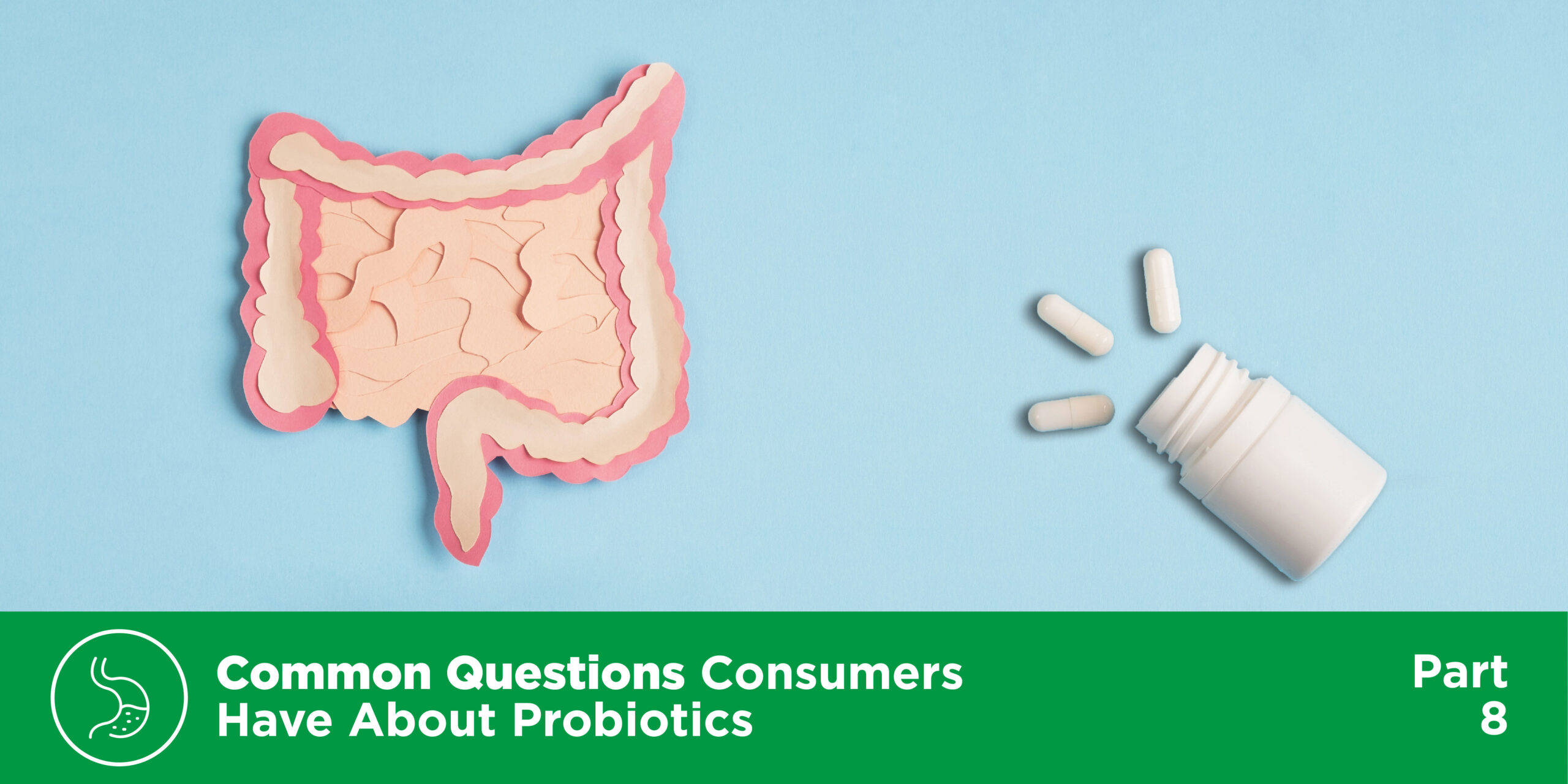This is part of our Ultimate Guide to Private Label Probiotics, a complete overview of the benefits of probiotic supplementation for consumers, some of the different strains and their specific uses, the process of responsibly manufacturing a probiotic product, and what to look for when choosing a probiotic manufacturer.
The following post provides answers to the most commonly asked questions by consumers who take or are considering taking a probiotic product. Please use this to help your customers understand which of your private label probiotic products would be best for their own or a family member’s unique needs.
For millennia, humans have consumed foods rich with live bacteria. In Korea, kimchi (fermented vegetables) has been consumed for thousands of years, and yogurt dates back to at least 5000 B.C. Today we have countless choices when it comes to our probiotic sources, and while some of those thousand-year-old food sources are still popular, there are countless new probiotic-containing foods, beverages, dietary supplements, and other products to choose from.
Modern-day technology has made it possible for us to keep these tiny, beneficial organisms alive inside of a capsule, and with that ability, product development efforts have continued to refine and enhance these shelf-stable products to include other beneficial ingredients, as well.
Research has shown that daily probiotic consumption can provide health benefits for many health conditions, but knowing which one to select can be a little tricky.
As always, if your customer is experiencing any specific or serious health issues or illnesses, it is best to refer them to their physician for advice prior to getting started with any supplementation.
Sometimes also phrased as “I’m healthy. Do I even need a probiotic supplement?” This is probably the MOST asked question. It is true that probiotics can now be found in many fermented foods and beverages. (Some of the most common fermented foods that naturally contain probiotics are yogurt, kefir, kombucha, sauerkraut, pickles, miso, tempeh, kimchi, sourdough bread, and some cheeses.) However, there are a few issues with using food as your only source of probiotics. For one, not all these products contain live, active probiotics. If they do, there may not be a variety in the strains they contain, and most likely the number of live organisms they offer is probably not significant. Therefore taking a probiotic supplement can be advantageous. Probiotic dietary supplements can deliver higher amounts (CFUs) of probiotics in a shelf-stable form, and may even use specialized strains or sophisticated delivery systems that protect the probiotics on their journey through the stomach.
Most people can tolerate probiotics well, and they can help restore or balance the healthy gut microbiome. However, some people (such as those who have a serious medical condition – especially one involving the gastrointestinal tract – or an autoimmune disease) should consider consulting their doctor before consuming probiotics.
While the recommended daily dose of a probiotic supplement can commonly range between 500 million to 25 billion CFUs (Colony-Forming Units), the “right” dose will depend on your purpose for taking them and how your body responds to them. Therefore, it is usually best to start at a low dose and slowly increase the number as tolerated. (The World Gastroenterology Organization Global Guidelines has an extensive list of probiotic strains, health conditions, and recommended dosages, as well.)
sense to choose a probiotic supplement that maintains this natural diversity. (For example, Bifidobacterium strains largely provide support for the large intestine, and Lactobacillus strains are commonly used to provide support for the small intestine.)
Although there are some probiotic strains that survive in equal numbers when taken with or without a meal, some of the most commonly used strains survive best when taken up to 30 minutes before a meal, which is probably why most manufacturers suggest taking probiotic supplements on an empty stomach. However, a month-long study found that probiotics produced positive benefits in the gut regardless of whether or not they were taken with a meal, demonstrating that consistency is probably more important than whether or not they are taken with food.
Sometimes consumers are concerned about taking too many probiotics or wondering if our bodies can become dependent on them (as can sometimes happen with laxatives or nasal spray). Even when consuming very large amounts of probiotics every day, it will not cause dangerous side effects or death. “There haven’t been any accounts of such occurrences,” says Ashkan Farhadi, MD, MS, FACP, gastroenterologist, and director of MemorialCare Medical Group’s Digestive Disease Center.
The ideal time to take probiotics is right before bed because “the gut is pretty inactive at night. If you think about it, you don’t usually wake up in the middle of the night to poop.” says Dr. Patricia Raymond, a doctor in both gastroenterology and internal medicine. If you ingest a probiotic at night when your bowel isn’t moving, there’s a better chance that it will hang around, divide, and potentially get integrated into your gut.
Absolutely. Antibiotics change the balance in the microbiome, which may result in an increase in harmful bacteria, so taking probiotics while on an antibiotic cycle can even be helpful. You don’t want to take them at the same time, however, as the antibiotics can kill the good bacteria in the probiotics. Take any product containing live bacteria at least 2 to 3 hours before or after taking antibiotics. (You may also consider taking the probiotics for 1–3 weeks after you’ve finished the antibiotic treatment.)
You sure can! In fact, babies begin to develop their unique intestinal bacterial profile even before birth, as they are exposed to bacteria in the womb. (During the birth process, the gut becomes further colonized with bacteria from the mother.) A 2019 study found that 63% of infants’ gut bacteria matched their mother’s bacterial profile. Additionally, pregnancy causes hormonal shifts that can cause unique inflammatory and immune changes that affect gut function and several other conditions, so the inclusion of a probiotic supplement while pregnant can have significant benefits for the mom as well as the baby.
According to the American Family Physician, kids can take 5 to 10 billion CFUs a day for a healthy immune and digestive system. They also say that in order to maintain colonization, probiotics must be taken regularly, therefore a daily dosage of probiotics helps prevent and reduce the risks of many health concerns.
As we age, the microflora of the gut changes, including a reduction in the numbers of good bacteria and an increase in the numbers of potentially pathogenic (“bad”) bacteria. The prevalence of gastric and duodenal ulcers, for example, increases over the age of 60. Also, our ability to fully digest food and eliminate waste is often reduced with age, and certain medications are likely to increase the occurrence of constipation, causing additional GI issues for those over 50. A growing body of research is showing that when the elderly supplement with some species and strains of probiotics, they’re seeing positive effects. For this reason, researchers have identified the importance of microbiota-based interventions (such as probiotic supplements) for healthy aging.
Although the human GI system is generally very similar, factors such as diet, race, age, antibiotic use, stress, environmental factors, and exercise can influence gut health. Gender is one of the important variables affecting the gut microbiota, and researchers are just beginning to understand why. Additionally, several of today’s more sophisticated probiotic products will offer advanced blends and targeted formulas that contain specific strains or other active ingredients that provide unique health benefits for women or men. While there are many probiotic products that are not gender-specific, the added benefits these Men’s or Women’s formulas provide are certainly worth considering.
Obviously, every individual will have a unique bacterial population present in the gut prior to starting probiotic supplementation. Depending on that starting condition and several other factors such as diet, medication, or certain health issues, people will have different responses to the introduction of a probiotic supplement. Often people will notice improvements in digestion as early as the first 1-2 weeks after starting probiotic supplementation. Some people with more sensitive stomachs will feel a difference after a few days. In cases where the desired benefits go beyond gut health (such as improvements to mood, weight loss, an increased immune response, or a reduction in overall inflammation), the effects might not be noticed until 4-8 weeks. While one person may notice some positive effects within a few days, some might need a month or more before they observe any changes.
Just as with questions above, the answer to this will likely be different for everyone. The specific outcome you’re hoping to achieve, the current condition of your gut, the quality, bacterial strains, and CFU count of the probiotic you are taking can all influence how quickly and to what degree you might notice any changes.
Summary
In the face of so many lifestyle and environmental factors working daily to negatively impact their health, many people feel that taking a probiotic supplement is one of the most obvious and convenient steps they can take toward maintaining good health. Offering a full range of private label probiotic products is a great way to meet the needs of every individual customer, and we hope this guide will be a helpful resource for both you and your customer when choosing a probiotic supplement.

†These statements have not been evaluated by The Food and Drug Administration. This product is not intended to diagnose, treat, cure or prevent any disease.





